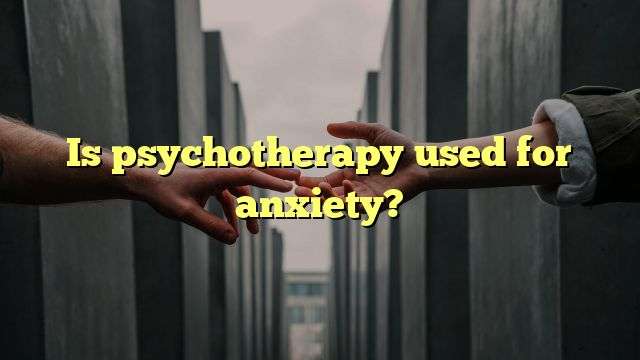What is Anxiety?
Anxiety is a feeling of worry, nervousness, or unease, typically about an imminent event or something with an uncertain outcome. It is a normal emotion that everyone experiences from time to time. However, when it becomes excessive and intrusive and begins to interfere with a person’s daily life, it is then considered an anxiety disorder.
Types of Anxiety Disorders
Anxiety disorders are a group of mental health conditions characterized by intense and persistent feelings of fear, worry, and unease. Common types of anxiety disorders include:
- Generalized Anxiety Disorder (GAD): People with GAD experience excessive, long-lasting worry and tension, even if there is little or nothing to provoke it.
- Social Anxiety Disorder: People with social anxiety disorder experience intense anxiety and fear in social situations.
- Panic Disorder: People with panic disorder experience sudden episodes of intense fear or terror, often accompanied by physical symptoms such as a racing heart, sweating, and chest pain.
- Post-Traumatic Stress Disorder (PTSD): People with PTSD experience persistent, intrusive memories of a traumatic event and may feel constantly on edge or easily startled.
- Obsessive-Compulsive Disorder (OCD): People with OCD experience intrusive thoughts and feel compelled to perform certain behaviors in order to reduce anxiety.
What is Psychotherapy?
Psychotherapy, also known as talk therapy, is one of the most effective treatments for anxiety disorders. Through psychotherapy, people learn to identify and manage the factors that contribute to their anxiety. Psychotherapy is a collaborative process between a person and a trained mental health professional. It can be conducted in individual, group, or family sessions.
What is Cognitive-Behavioral Therapy?
Cognitive-behavioral therapy (CBT) is a type of psychotherapy that is widely used to treat anxiety disorders. CBT focuses on teaching people to identify and challenge distorted patterns of thinking (called cognitions) and modify their behaviors to reduce anxiety. Through CBT, people learn to recognize and replace anxious thoughts and behaviors with healthier coping strategies.
How is Cognitive-Behavioral Therapy Used to Treat Anxiety Disorders?
CBT is an effective treatment for anxiety disorders because it helps people identify and address the root causes of their anxiety. CBT is usually conducted over a period of several weeks or months and involves the following components:
- Education: Learning about anxiety and the factors that contribute to it, such as distorted thinking and avoidance behaviors.
- Psychoeducation: Learning about the various types of anxiety disorders and their symptoms.
- Cognitive Restructuring: Learning to identify and challenge maladaptive or distorted thoughts.
- Behavioral Experiments: Learning to test the accuracy of maladaptive thoughts and confront feared situations.
- Relaxation Training: Learning to use relaxation techniques to manage anxiety.
- Stress Management: Learning to identify and manage sources of stress.
CBT is highly effective at treating anxiety disorders. In fact, multiple studies have shown that CBT is as effective as medication for treating anxiety disorders. Furthermore, the effects of CBT are longer lasting.
Conclusion
In conclusion, cognitive-behavioral therapy is highly effective at treating anxiety disorders. Through CBT, people learn to identify and manage the factors that contribute to their anxiety. CBT is often conducted over a period of several weeks or months and involves components such as education, cognitive restructuring, and relaxation training. CBT is as effective as medication for treating anxiety disorders, and the effects are longer lasting.
